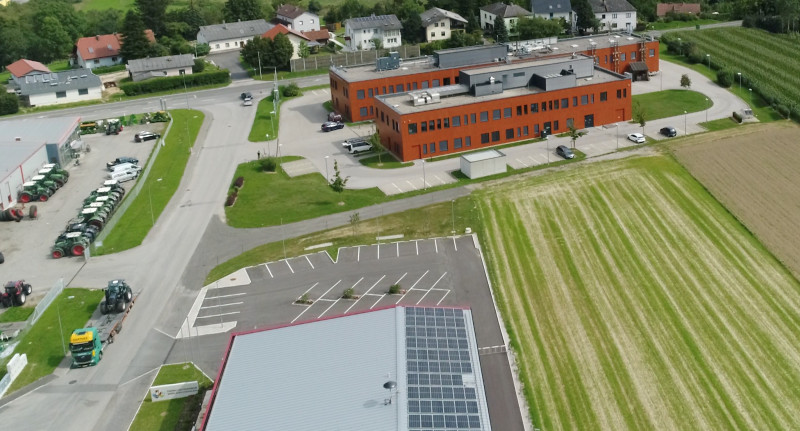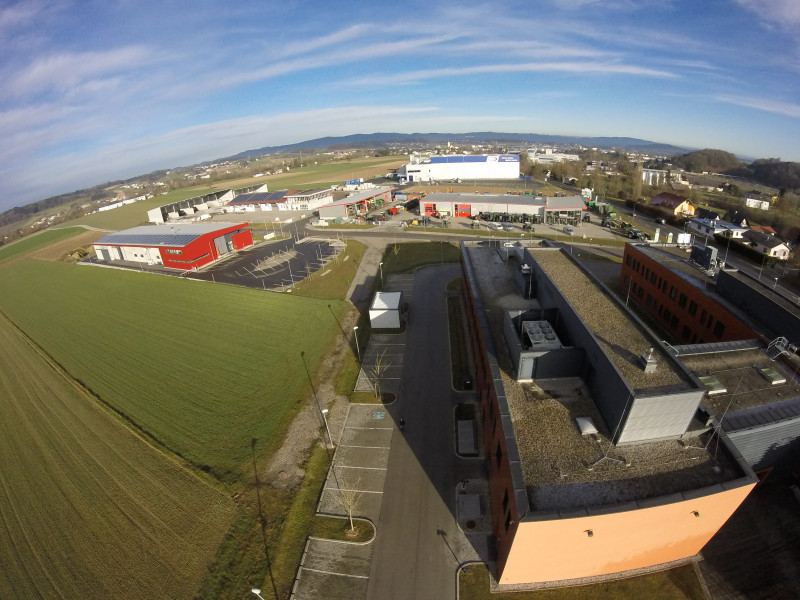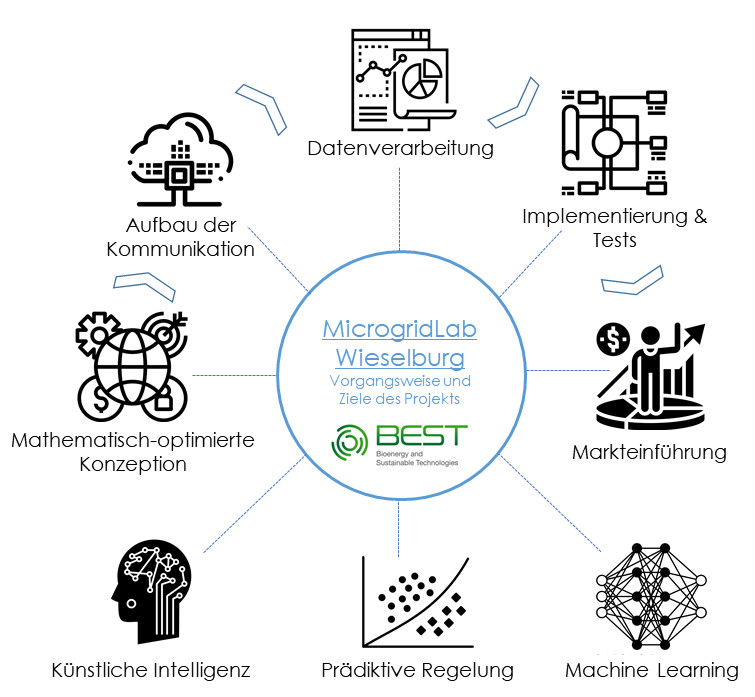Microgrid Lab 100: Microgrid research lab for 100% decentralized energy supply (electricity, heating-, cooling supply): planning and installation of a microgrid as a real development environment and further development of optimization methods
The "Microgrid Lab Wieselburg" investigates the design and operation of microgrid technologies from a techno-economic perspective for real buildings, considering sectoral coupling of electricity and heat. It is the first laboratory in Austria that combines economic, technical and regulatory parameters and allows the further development of microgrid planning- and control algorithms. These parameters are necessary for an optimal design and optimal technical and economical operation. Microgrids are local multi-energy systems in which the energy flows for electricity, heating/cooling are generated and stored decentral. In detail, the newly built fire fighter station and the "Technology and Research Center" Wieselburg have been connected as an electrical and thermal microgrid system. Renewable and distributed technologies as PV, electric and thermal storage, chillers, biomass technologies, e-charging stations as well as data from a weather station have been connected together and are controlled by a predictive, intelligent control system (microgrid controller). This predictive, intelligent control system allows to dispatch the technologies according to a wide range of specifications. Self-learning algorithms/predictions are developed which reduce the calibration effort of the control system. A central goal of the microgrid research laboratory is to verify and improve the developed control algorithms and to connect them to an open communication system. The obtained research results and microgrids in general can be easily scaled up and provide a direct contribution to the climate goals. The research project "Microgrid Lab 100%" is funded by the government of Lower Austria.
Already in the first year of operation, initial measures showed that 97 % of the locally provided PV electricity was also used locally. The superordinate controller will also reduce grid charges in the future, since load peaks can be specifically avoided, for example. The prerequisite for this is time-variable electricity tariffs.
Currently, the first test runs of an optimized superordinate control are already being carried out under real conditions at the Microgrid Laboratory. The developed and tested optimization algorithms process on the one hand load data of the technology- and research center (electricity, heating and cooling demand) and on the other hand production data of the energy systems (PV plant, wood chip plants,...) as well as the current states of charge of the thermal and the electrical storage. The developed control algorithm ensures that the optimal result is achieved according to the desired objective function: (1.) max. cost saving, (2.) max. CO2 saving and (3.) grid efficiency (evaluation with regard to the grid).
Projektlaufzeit
2019-01-01 - 2024-03-31
Supported by
Land Niederösterreich
Projektpartner








Publications
100% ein Zukunftsprojekt; Innovatives Forschungslabor am Technopol Wieselburg
Microgrid Forschungslabor für 100 % dezentrale Energieversorgung
Microgrid Forschungslabor für 100 % dezentrale Energieversorgung
Microgrid Forschungslabor für 100 % dezentrale Energieversorgung
Microgrid Forschungslabor für 100 % dezentrale Energieversorgung
Microgrid Forschungslabor für 100 % dezentrale Energieversorgung



